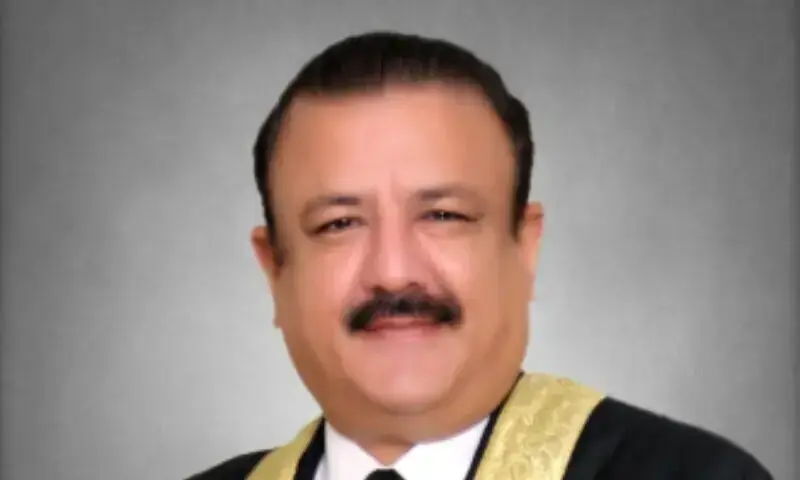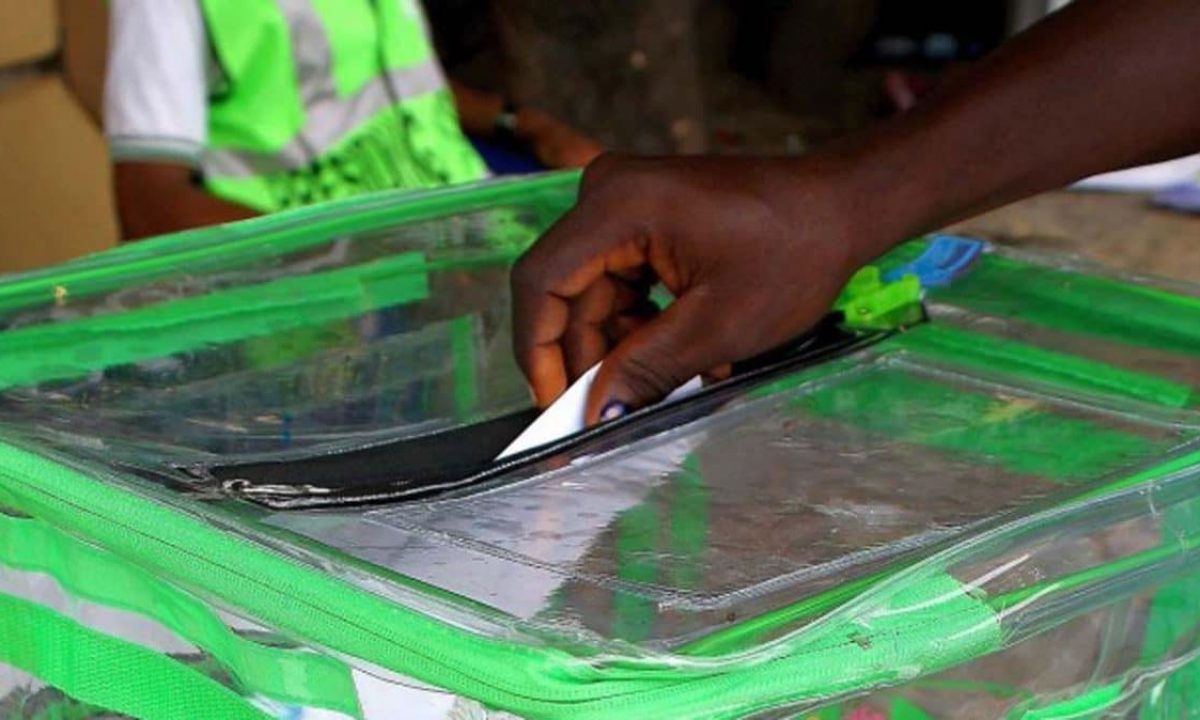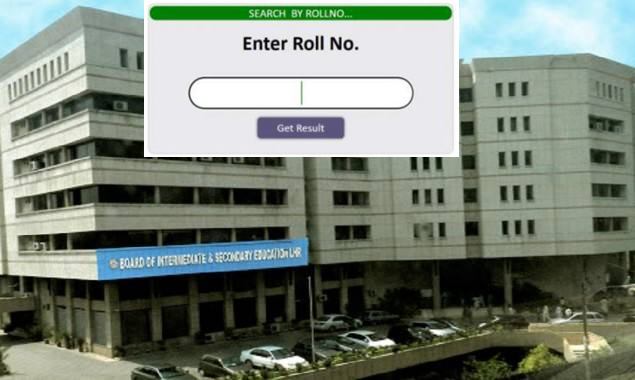‘Can’t be held hostage’: SHC irked after chaotic proceedings in Justice Jahangiri degree case
By Ishaq Tanoli
Copyright dawn

A day after commotion and chaos at the Sindh High Court (SHC) during a hearing of seven petitions challenging the cancellation of Justice Tariq Mehmood Jahangiri’s law degree, a written order of the court was released on Friday, stating that the SHC could “not be held hostage to the whims/ wishes of the advocates as to the manner in which the petitions shall be heard”.
The order, a copy of which is available with Dawn.com, also said that the seven petitions had been dismissed over non-prosecution. It also mentioned that it was for the court to determine how to regulate its proceedings and “it cannot be dictated to by the advocates”.
Yesterday, commotion was witnessed at the SHC after a two-judge constitutional bench, comprising Justice Mohammad Karim Khan Agha and Justice Adnan-ul-Karim Memon, dec-lined to entertain Justice Jahangiri’s plea
to become a party in proceedings on the seven petitions. The bench set aside the IHC judge’s application, insisting that it would first hear and decide the maintainability of the petitions.
Lawyers for the petitioners, however, objected to the jurisdiction of the bench and urged the court to decide their objections first.
The proceedings drew a large number of lawyers inside and outside the courtroom, with many shouting slogans, clapping and later staging a protest outside the SHC against one of the judges. The petitioners and their lawyers also walked out of the courtroom in protest over their objections not being addressed and the court’s refusal to entertain Justice Jahangiri’s plea.
In its order released today, the SHC bench recalled that when Advocate Ebrahim Saifuddin was called from among the petitioners’ lawyers for arguments on maintainability, he declined to present his arguments. “According to him this court was required to first decide the preliminary objections raised by Salahuddin Ahmed and Faisal Siddiqui.”
The order also referred to Advocate Saifuddin with regards to another petition, mentioning that when he was directed to present arguments on the maintainability of the plea, he left the courtroom.
Similarly, the bench observed, when Advocate Siddiqui was called to address the court on the question of maintainability, he argued that objections regarding the jurisdiction of the court should be decided first. “When his request was declined by the bench, he left the courtroom stating that he would not proceed any further.”
About Advocate Salahuddin Ahmed, the order stated that upon being called for arguments on the issue of maintainability, the lawyer insisted that objections he had raised regarding an earlier order dated September 22 be decided first. Advocate Ahmed, too, refused to address the matter of maintainability and left the court, the order added.
Regarding other pleas, the bench noted that the counsels for the petitioners were not present at the time and might have left the court room.
On these grounds, the court dismissed the petitions for non-prosecution. The order stated that the counsels were given the opportunity to be heard and address the maintainability of the pleas, which they “deliberately” did not avail.
In its order, the court also touched upon the dismissal of Justice Jahangiri’s application to become a party in the proceedings on pleas against the cancellation of his degree.
Justice Jahangiri, “with the permission of the court, addressed this court with dignity and patience, however not on the point of any petition or listed application, which, if any, are accordingly dismissed for non-prosecution as he also left the courtroom despite being given an opportunity of being heard on any petition or listed application”.
“The petitioners and the intervener (Justice Jahangiri) have wilfully refused to pursue this matter and walked out during the hearing when asked to argue on the maintainability of these petitions. The reasons are obvious, demonstrating a deliberate lack of interest and constituting a gross abuse of the process of the court,” the order read.
It further stated that superior courts had the “inherent power” to dismiss constitutional petitions for non-prosecution or default to regulate proceedings under Article 199 of the Constitution — which defines the jurisdiction of a high court — in cases where “a persistent lack of diligence justifies [the] dismissal”.
Regarding yesterday’s proceedings, the order further stated that the lawyers “began raising slogans against the judiciary and completely disrupted the decorum of the court. Such conduct is highly unbecoming and not expected from senior members of the legal profession. Prima facie, such conduct amounts to contempt of court”.
However, it continued, “by way of indulgence and by showing maximum judicial restraint, we have decided to refrain ourselves from issuing any such notices”.
The order also explained that objections raised by Advocates Ahmed and Siddiqui largely pertained to a court order dated September 22. “It was a judicial order that was still in the field,” the court observed, adding that the appropriate course for the lawyers would have been to approach the Supreme Court.
Addressing objections regarding the “bias of the bench”, the court stated that “it is well settled now that whether a judge recuses or not is his decision based on his conscience. Neither of us were of the view that any ground for recusal was made out”.
Referring back to the “rumpus” during the proceedings, the court directed the registrar to preserve all CCTV recordings and any audio recording of inside and outside the courtroom from September 25.
Filing of the petitions
The case pertaining to Justice Jahangiri’s degree centres on a letter that began circulating last year on social media, purportedly from the University of Karachi’s (KU) controller of examinations.
The seven petitions that have been dismissed were filed last year by various bar associations, lawyers and a member of the KU syndicate, challenging decisions of the university’s Unfair Means Committee (UMC) and Syndicate that cancelled Justice Jahangiri’s degree.
In September last year, the SHC had suspended, through an interim order, the KU’s decision, restraining the university from taking coercive measures.
The court had observed that every citizen’s right to fair trial was protected but that no hearing had been provided to Justice Jahangiri before the cancellation of the degree, which appeared obj-ec–tionable, illegal and without authority.
The petitions were fixed for Thursday’s hearing after the Sindh Higher Education Commission (SHEC) filed an urgent application seeking vacation of the interim stay order.



